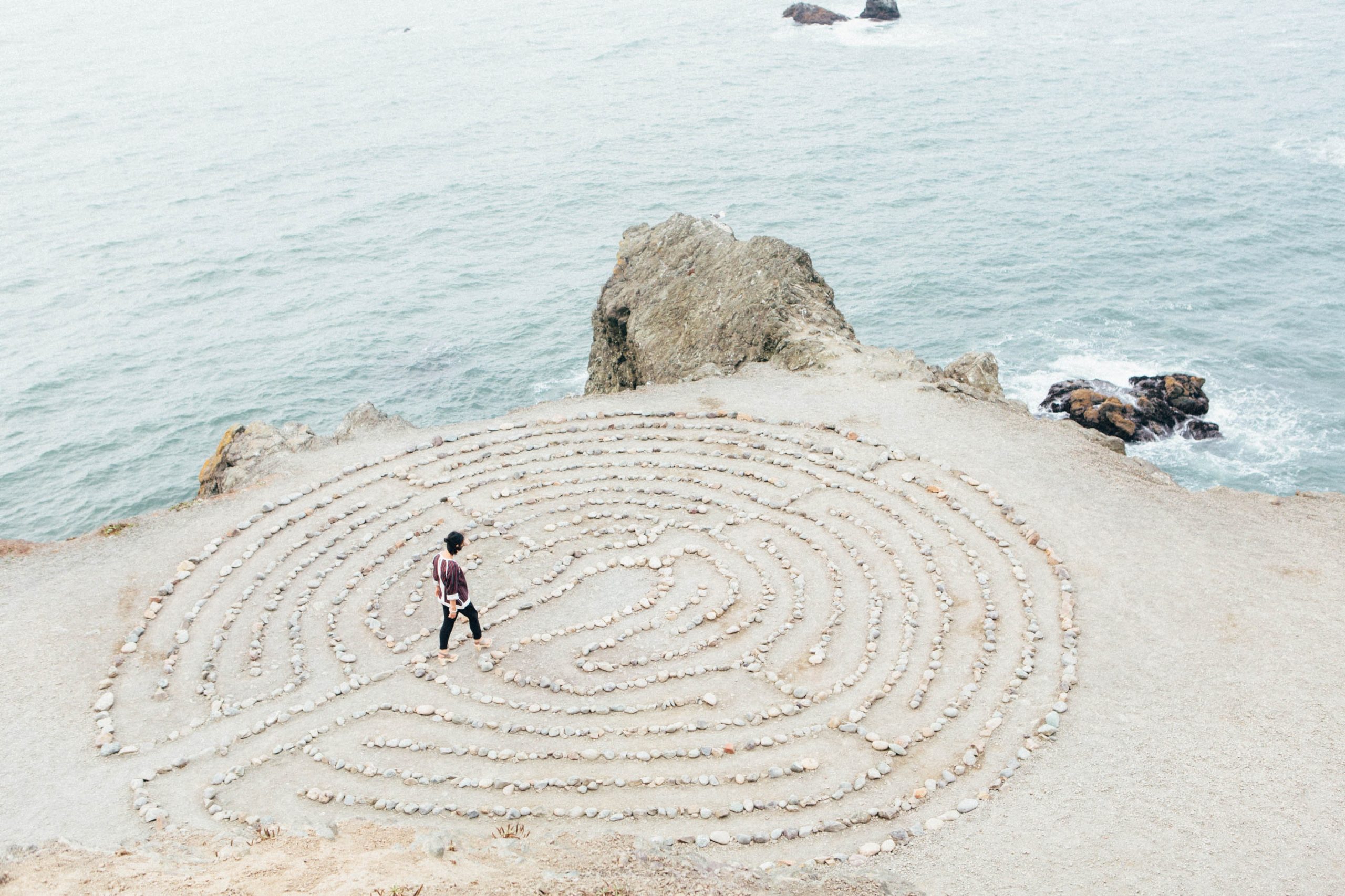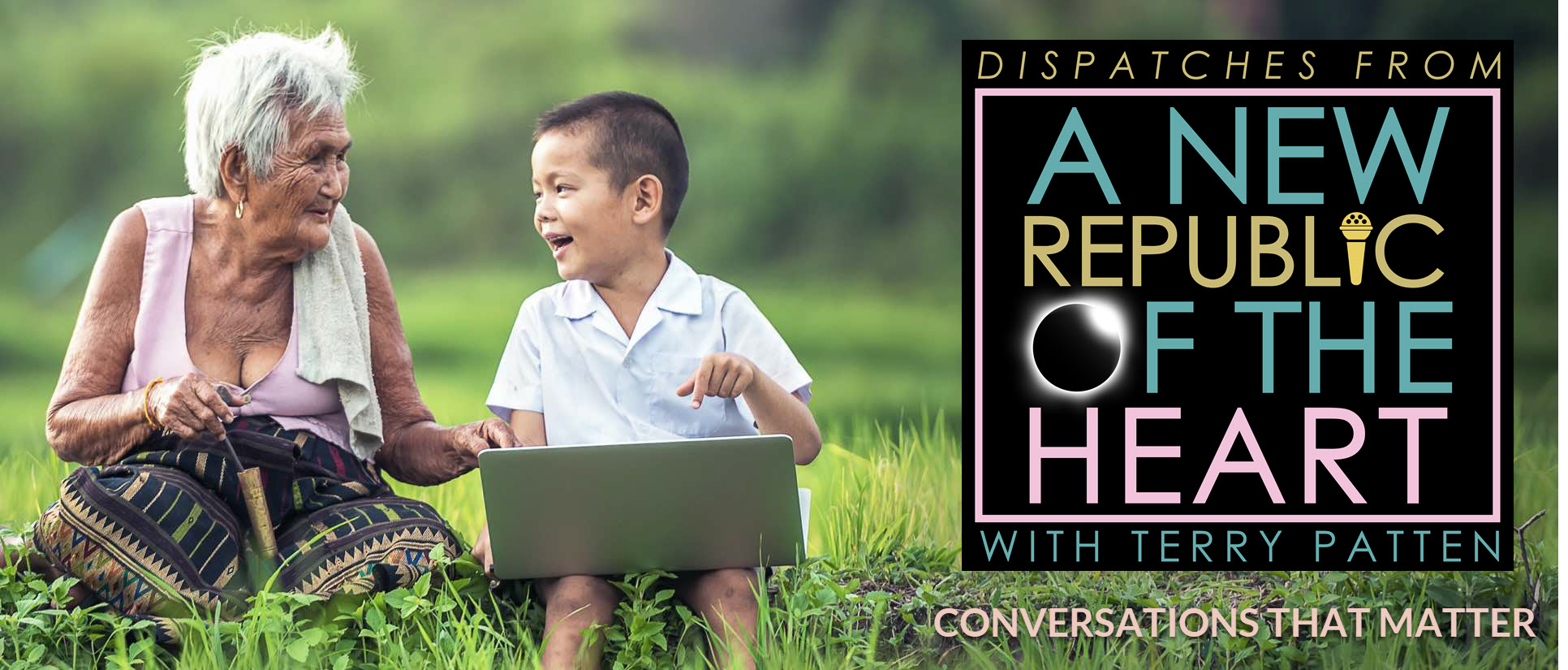I know the pandemic is the primary holder of our thoughts these days. And I’m sure many of you, especially if you do not live in the United States, may think an interview with Marianne Williamson from 2019 is not timely or of much benefit for us right now, given that she concluded her Presidential candidacy in January of this year. It actually seems to me that most of the conversations she engaged in last year are of utmost importance on today’s stage. I invite you to listen to Cari Stein’s interview with Marianne (link below) – especially if you have yet to hear her in a one-on-one, in-depth interview before now – or to one of the other recordings I will be offering in the weeks to come.
Ms. Stein is the executive producer of To The Contrary, a PBS weekly news analysis program. Her interview with Marianne Williamson aired on PBS on June 6, 2019. It was my first chance to hear Marianne talk in more than very limited sound bites. I could not find a full length video of the PBS interview, but did find a full length audio recording of it published on June 7, 2019 by Listen Notes, an online podcast database. As I find true in all of her in-depth interviews, she speaks intelligently, offers solid knowledge of the facts, and asks many important questions about numerous critical issues facing our country today.
Something Marianne often mentions is how smart and engaged she finds the people of America to be. As she puts it, “Politicians are not the only people having deep discussions about what the country needs.” While traveling around the country during her campaign, she spoke before many thousands of people who were energized by and appreciative of her no-nonsense style, and her deep discussions about real issues such as child care, homelessness, increased pollution rates, our educational systems, the re-purposing of jobs for a more sustainable future, getting big money out of politics, the crises most of our farmers face, global warming – this list goes on and on. II find her approach to them all to be refreshing and often out-of-the-box.
In this interview, Marianne talks about the skill sets people need to navigate crises, finding their way into opportunities in order to transform their lives. She believes a nation as well needs to be able to use the same skill sets to navigate the crises it faces in order to discover the opportunities therein. After all, a nation is merely a large group of people. (Note: Marianne has 35 years of experience working with people to help them learn the skills they need to transform their lives.)
Also in this interview, she says it’s time for Americans to get honest and look at “all the ways we do not live by the principles on which we purport to stand… Are we or are we not going to take ‘all men are created equal’ seriously? Are we or are we not going to support, ‘God gave all men unalienable rights to life, liberty, and the pursuit of happiness’?” She asks us, if we are going to take these questions seriously, then what about the millions of children who go hungry or live in and attend school in chronic trauma every day? These children are citizens too, but have “no way to compete with the glut of multinational, worldwide corporations whose millions and billions of dollars flood our political system, creating a system that has become little more than a game of legalized bribery.” She heartily advocates that you and I work to return our country to a government of the people, by the people and for the people – a task which most definitely is up to the citizenry to accomplish as it is rarely, if ever, undertaken by leaders.
And, when discussing inalienable rights and equality, Marianne also considers the hate and racism being promulgated throughout our society today. “When Lincoln spoke of ‘the angels of our better nature,’ he was not speaking metaphorically,” she says. He was talking about the positive aspects of the human character such as tolerance, justice, compassion, mercy, commitment, and dedication. All such characteristics were referred to as ‘angels’ in Lincoln’s day. The negative aspects of our human character – such as antisemitism, hate, bigotry, homophobia, racism – were referred to as demons. One of Marianne’s most fervent points is that the people demonstrating hateful qualities in our societies around the world today are doing so with a huge amount of conviction. She warns us repeatedly that conviction is a force multiplier. She insists that those of us who believe in love, care and compassion must show as much or more “spine and conviction” about our beliefs as do the people who hate other human beings. To add some punch to her point, Marianne offers, “When hate is shouting, it’s not enough for love to whisper.” Of course, you and I don’t want to hit the streets tomorrow, yelling belligerently about our belief in love. But all of us who do believe in the power of love and compassion – all “the angels of our better nature” – must find a way to be more vocal, to be heard, and most importantly, to have our voices counted above the din of those who spread hate.
As you read this, what topics are coming to mind as the most important ones during this presidential election year in America? Do those of you who are citizens of other countries believe that the 2020 election in the USA will have more of an effect on your lives than any other US presidential election has had in recent years? How can any of us encourage our politicians the world over to have conversations about issues we believe are the most important in our world today? As Albert Einstein said, “ We can’t solve problems by using the same kind of thinking we used when we created them.” To my way of thinking, our American politicians are stuck in a political structure with views and policies that no longer work in our present day crisis. How can we help shift the focus, for both Democrats and Republicans alike, away from politics as usual and toward practically answering these critical questions that are on the table? I believe Marianne Williamson addresses most of the truly important issues facing us today, as well as the maturity it will take for us to deal with our multiple crises more thoroughly in years to come. Have you heard any of Marianne’s deeper conversations? If so, what are your thoughts?
While many of us still have to stay at home because of the pandemic, I think this is a perfect time to listen to some of her conversations, to take some of her ideas to heart, even to put some of her ideas into practice in our everyday lives, no matter what our country of origin may be. The pandemic, and the chaos it has spun us all into around the world, provides a good opportunity for us to make changes to our lifestyles and, hopefully, to our political systems. Marianne offers us the benefit of some very wise and thought provoking conversations that, in my opinion, will help lead us in a good direction as we try to emerge in one piece from this place of confusion and uncertainty.


